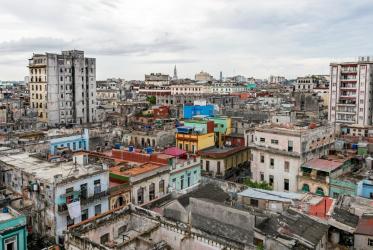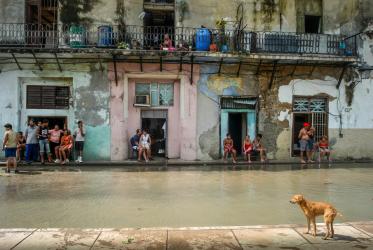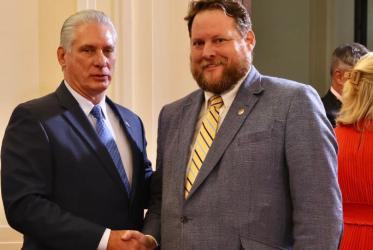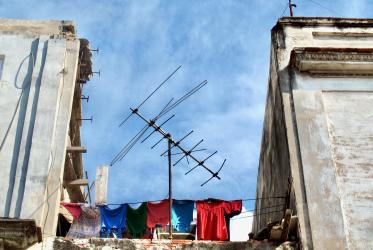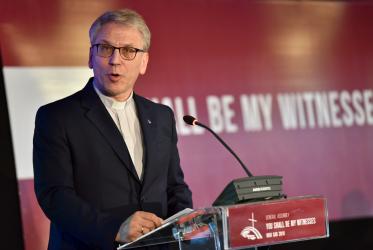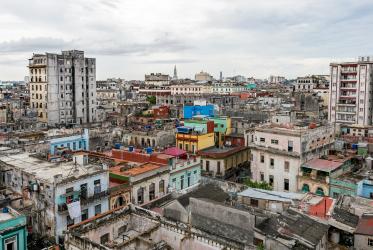Displaying 1 - 20 of 22
Diakonia: “a tool to reach abundance of life”
24 July 2018
Seven weeks of Lent highlight water justice in Latin America
12 February 2018
WCC hails historic visit of US leader to Cuba
23 March 2016
WCC urges responsibility for and support to the refugees in Europe
04 September 2015
Serbian Patriarch Irinej addresses UN on peace
10 September 2013
Church leaders affirm Cuban religious reforms
09 July 2013
